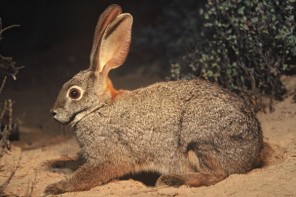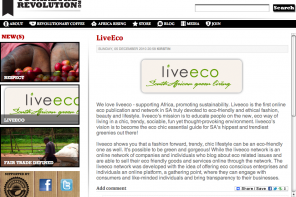Most of the local crops in South Africa are grown in “just right” circumstances. The effects of global warming (which could lead to severe weather patterns and erratic rainfall) could have potentially devastating effects on the international farming community and, essentially, our food security.
Many researchers and institutions are embarking on studies that will look at ways to help farmers withstand the pressures from extreme weather patterns, water scarcity and climate change to ensure food security in the future.
Global population increasing faster than we can grow crops
In December 2010, the International Food Policy Research Institute (IFPRI) warned that global warming will cause yields of rice and wheat to fall in all regions of the world by 2050, compared to a future without climate change. The G20 grouping of the world’s largest economies has put “food security” top of its 2011 to-do list.
According to The Economist, the world’s food system is in crises – food prices are now higher in real terms than at any time since 1984 and they could rise further still if drought lays waste to China’s wheat harvest, as is feared. The Economist also estimated that food production will have to rise by 70% by 2050 to keep pace with population growth, the explosion of developing countries’ megacities and the changes in diet that wealth and urbanisation bring. The world’s population will grow from almost 7 billion now to over 9 billion in 2050 and, for the first time since the 1960s, the yields of wheat and rice (the world’s most important crops) are rising more slowly than the global population.
Farmers need to adapt
“With the onset of accelerated climate change, it is going to be important that farmers can adapt, so researchers need to accelerate progress in making crops more resilient to droughts and floods. Plant breeders need to do more and faster, and they need more resources to do it,” says Lawrence Kent, an agricultural development officer at the U.S.-based Bill & Melinda Gates Foundation.
Dr Constansia Musvoto from the Council for Scientific and industrial Research (CSIR) told members of the Southern African Confederation of Agricultural Unions (SACAU) that agricultural production in Southern Africa is projected to be halved within the next 70 years as a result of climate change.
“Temperatures will increase by up to 6ºC, while rainfall will drop by as much as 40 percent in some parts of the region. Due to rising temperatures, malaria will spread more widely, for example, which will negatively affect the availability of farm labour,” says Musvoto.
Pius Chilonda, sub-regional coordinator of the Regional Strategic Analysis and Knowledge Support System for Southern Africa (ReSAKSS-SA) says that Southern Africa has been struggling with low yields due to inadequate management of water and land as well as a lack of access to agricultural markets and technology. “There is not enough regional agricultural research that could help farmers deal with climate change,” said Chilonda.
“The agricultural sector in Southern Africa needs long-term planned adaptation strategies, building climate change resilience and ensuring that initiatives to address climate change reach all farmers, including the most poor and vulnerable,” commented Musvoto.
Who’s investing in the research that farmers need?
On 1 March 2011, Google Ventures and Khosla Ventures led a US$42-million financing round in a San Fransisco startup called WeatherBill. The company intends to insure farmers against extreme weather that can cripple crop production.
WeatherBill was founded by Google alumni and they specialise in computer simulations that predict the likelihood of extreme weather at any given time and location. The 30-person company has computer scientists and climatologists that crunch weather data and feed it into computer models that run on hundreds of servers and are updated several times a day.
“We provide protection to farmers of unexpected weather primarily caused by extremes of rainfall or temperature, something we’re seeing more of because of climate change,” said David Friedberg, WeatherBill’s CEO.
“This is a technology company working on something that is going to have a real-world impact on a foundational global industry, which is agriculture. Helping famers protect their financial futures and protect the global food supply is something I think we all can be passionate about,” said Bill Maris, managing director of Google’s investment arm.
The liveeco team






